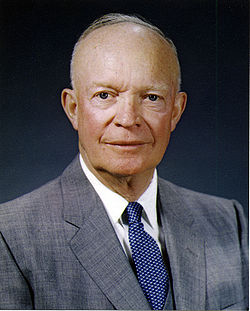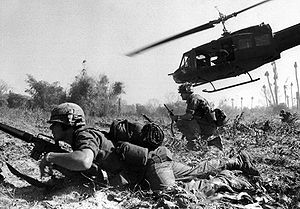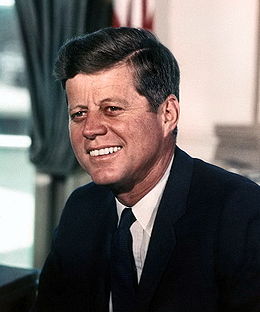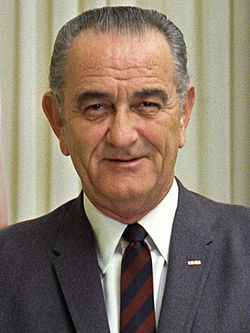| |
Date |
Event(s) |
| 1 | 1898 | |
| 2 | 1945 | |
| 3 | 1950 | |
| 4 | 1952 | - 1952—1952: Contraceptive pill invented
- 1952—1952: Britain explodes her first atomic bomb, in Australia
- 1952—1952: Radioactive carbon used for dating prehistoric objects
- 1952—1952: Bonn Convention: Britain, France and USA end their occupation of West Germany
- 6 Feb 1952—6 Feb 1952: King George VI dies
- 21 Feb 1952—21 Feb 1952: Identity Cards abolished in Britain
- 2 May 1952—2 May 1952: First commercial jet airliner service launched, by BOACComet between London
and Johannesburg
- 5 Jul 1952—5 Jul 1952: Last tram runs in London (Woolwich to New Cross)
- 16 Aug 1952—16 Aug 1952: Lynmouth (North Devon) flood disaster
- 6 Sep 1952—6 Sep 1952: DH110 crashes at Farnborough Air Show, 26 killed
- 3 Oct 1952—3 Oct 1952: End of tea rationing in Britain
- 1 Nov 1952—1 Nov 1952: The first H-bomb ever ('Mike') was exploded by the USA - the mushroom cloud
was 8 miles across and 27 miles high. The canopy was 100 miles wide. Radioactive mud fell
out of the sky followed by heavy rain. 80 million tons of earth was vaporised.
- 25 Nov 1952—25 Nov 1952: Agatha Christie's 'The Mousetrap' opens in London
- 4 Dec 1952—4 Dec 1952: Great smog hits London
|
| 5 | 1953 | - 20 Jan 1953—20 Jan 1961:
 Dwight D. Eisenhower U.S. Presidency Dwight D. Eisenhower U.S. Presidency
- 31 Jan 1953—31 Jan 1953: Said to be the biggest civil catastrophe in Britain in the 20th century -
severe storm and high tides caused the loss of hundreds of lives - - effects travelled from the
west coast of Scotland round to the south-east coast of England [The Netherlands were even
worse affected with over a thousand deaths]
- 5 Feb 1953—5 Feb 1953: Sweet rationing ends in Britain
- 5 Mar 1953—5 Mar 1953: Death of Stalin
- 26 Mar 1953—26 Mar 1953: Jonas Salk announces his polio vaccine
- 24 Apr 1953—24 Apr 1953: Winston Churchill knighted
- 25 Apr 1953—25 Apr 1953: Francis Crick and James D Watson publish the double helix structure of DNA
- 2 Jun 1953—2 Jun 1953: Coronation of Elizabeth II
- 26 Sep 1953—26 Sep 1953: Sugar rationing ends in Britain (after nearly 14 years)
|
| 6 | 1954 | - 1954—1954: First comprehensive school opens in London
- 1954—1954: Routemaster bus starts operating in London
- 1954—1954: First transistor radios sold
- 6 May 1954—6 May 1954: First sub 4 minute mile (Roger Bannister, 3 mins 59.4 secs)
- 3 Jul 1954—3 Jul 1954: Food rationing officially ends in Britain
- 5 Jul 1954—5 Jul 1954: BBC broadcasts its first television news bulletin
- 30 Sep 1954—30 Sep 1954: First atomic powered sumbmarine USS Nautilus commissioned
|
| 7 | 1955 | - 1955—1955: 'Mole' self-grip wrench patented by Thomas Coughtrie of Mole & Sons
- 27 Jul 1955—27 Jul 1955: Jul 27: Allied occupation of Austria (after WW2) ends
- 22 Sep 1955—22 Sep 1955: Commercial TV starts in Britain
|
| 8 | 1956 | - 1956—1956: Britain constructs world's first large-scale nuclear power station in Cumberland
- 1 Mar 1956—1 Mar 1956: Radiotelephony spelling alphabet introduced (Alpha, Bravo, etc)
- 17 Apr 1956—17 Apr 1956: Premium Bonds first launched - first prizes drawn on 1 Jun 1957
- 3 Jun 1956—3 Jun 1956: 3rd class travel abolished on British Railways (renamed 'Third Class' as 'Second
Class', which had been abolished in 1875 leaving just First and Third Class)
- 31 Oct 1956—31 Oct 1956: Britain and France invade Suez
|
| 9 | 1957 | - 1957—1957: Britain introduces parking meters
- 1957—1957: Helvetica typeface developed (in Switzerland)
- 11 Jan 1957—11 Jan 1957: Harold Macmillan becomes Prime Minister
- 14 May 1957—14 May 1957: Post-Suez petrol rationing ends
- 15 May 1957—15 May 1957: Britain explodes her first hydrogen bomb, at Christmas Island
- 25 May 1957—25 May 1957: Treaty of Rome to create European Economic Community (EEC) of six
countries: France, West Germany, Italy, Belgium, Holland and Luxembourg - became
operational Jan 1958
- 4 Dec 1957—4 Dec 1957: Lewisham rail disaster - 90 killed as two trains collide in thick fog and a viaduct
collapses on top of them
- 25 Dec 1957—25 Dec 1957: Queen's first Christmas TV broadcast
|
| 10 | 1958 | - 1958—1958: Easter: First anti-nuclear protest march to Aldermaston (emergence of CND)
- 1958—1958: Computers begin to be used in research, industry and commerce
- 1958—1958: USA begins to produce Inter-Continental Ballistic Missiles (ICBMs)
- 13 May 1958—13 May 1958: Velcro trade mark registered
- 26 Jul 1958—26 Jul 1958: Prince Charles' Investiture as 'Prince of Wales'
- 5 Dec 1958—5 Dec 1958: Inauguration of Subscriber Trunk Dialling (STD) in Britain (completed in 1979)
- 5 Dec 1958—5 Dec 1958: Preston by-pass opens - UK's first stretch of motorway
|
| 11 | 1959 | - 3 Feb 1959—3 Feb 1959: 'The Day The Music Died' - plane crash kills Buddy Holly, Ritchie Valens, and
The Big Bopper
- 17 Feb 1959—17 Feb 1959: Vanguard 2 satellite launched - first to measure cloud-cover distribution
- 24 May 1959—24 May 1959: Empire Day becomes Commonwealth Day
- Aug 1959—Aug 1959: BMC Mini car launched
- 26 Sep 1959—30 Apr 1975:
 Vietnam War Vietnam War
- 3 Oct 1959—3 Oct 1959: Postcodes introduced in Britain
- 1 Nov 1959—1 Nov 1959: First section of M1 motorway opened
|
| 12 | 1960 | - 17 Mar 1960—17 Mar 1960: New ?1 notes issued by Bank of England
- 18 Mar 1960—18 Mar 1960: Last steam locomotive of British Railways named
- 21 Jul 1960—21 Jul 1960: Francis Chichester arrives in New York aboard Gypsy Moth II (took 40 days),
winning the first single-handed transatlantic yacht race which he co-founded
- 12 Aug 1960—12 Aug 1960: Echo I, the first (passive) communications satellite, launched
- 12 Sep 1960—12 Sep 1960: MoT tests on motor vehicles introduced
- 1 Oct 1960—1 Oct 1960: HMS 'Dreadnought' nuclear submarine launched
- 2 Nov 1960—2 Nov 1960: Penguin Books found not guilty of obscenity in the 'Lady Chatterley's Lover' case
|
| 13 | 1961 | - 1 Jan 1961—1 Jan 1961: Farthing ceases to be legal tender in UK
- 20 Jan 1961—22 Nov 1963:
 John F. Kennedy U.S. Presidency John F. Kennedy U.S. Presidency
- 13 Mar 1961—13 Mar 1961: Black & White ?5 notes cease to be legal tender
- 14 Mar 1961—14 Mar 1961: New English Bible (New Testament) published
- 1 May 1961—1 May 1961: Betting shops legal in Britain
|
| 14 | 1962 | - 1962—1962: Britain passes Commonwealth Immigrants Act to control immigration
- 1962—1962: Thalidomide withdrawn after it causes deformities in babies
- 1962—1962: Britain and France agree to construct 'Concorde'
- 25 May 1962—25 May 1962: Consecration of new Coventry Cathedral (old destroyed in WW2 blitz)
- 15 Jun 1962—15 Jun 1962: First nuclear generated electricity to supplied National Grid (from Berkeley Glos)
- Jul 1962—Jul 1962: First passenger-carrying hovercraft enters service, along the North Wales Coast from Moreton to Rhyl
- 10 Jul 1962—10 Jul 1962: First TV transmission between US and Europe (Telstar) - first live broadcast on 23 Jul
- 24 Oct 1962—24 Oct 1962: Cuba missile crisis - brink of nuclear war
|
| 15 | 1963 | - 1963—1963: France vetoes Britain's entry into EEC
- Jan 1963—Jan 1963: Cold weather forces cancellation of most football matches (only 4 English First Division matches in the month) - the first 'pools panel' created
- 27 Mar 1963—27 Mar 1963: Beeching Report on British Railways (the 'Beeching Axe')
- 1 Aug 1963—1 Aug 1963: Minimum prison age raised to 17
- 8 Aug 1963—8 Aug 1963: 'Great Train Robbery' on Glasgow to London mail train
- 17 Sep 1963—17 Sep 1963: Fylingdales (Yorks) early warning system operational
- 18 Nov 1963—18 Nov 1963: Dartford Tunnel opens
- 22 Nov 1963—20 Jan 1969:
 Lyndon B. Johnson U.S. Presidency Lyndon B. Johnson U.S. Presidency
- 23 Nov 1963—23 Nov 1963: First episode of 'Dr Who' on BBC TV
|



 Submit Photo / Document
Submit Photo / Document
